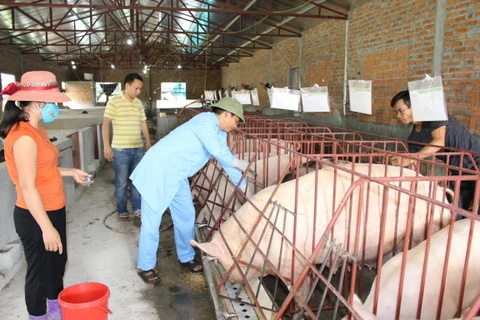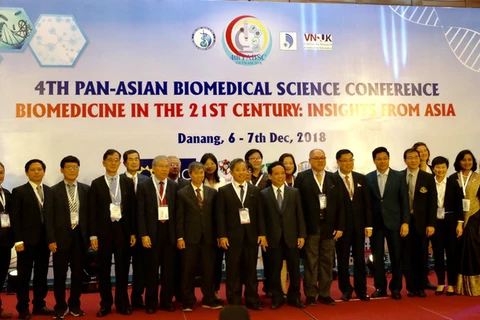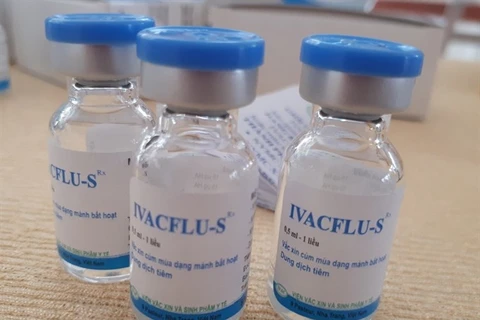 Biomedical research in the country has led to new findings that could be used to make new Vietnamese-branded drugs (Source: VNA)
Biomedical research in the country has led to new findings that could be used to make new Vietnamese-branded drugs (Source: VNA) HCM City (VNS/VNA) - Biomedical research by scientists nationwide has led to important findings that could produce new Vietnamese-branded drugs and medical treatments, but commercialisation of research results faces challenges, experts have said.
Dr Nguyen Dang Quan, deputy director of the HCM City Biotechnology Centre, said the centre was involved in basic and applied research in agriculture, food, health and other fields that could be used commercially.
Quan spoke at a conference on biotechnology and biomedicine held on March 30 by the Ho Chi Minh Communist Youth Union’s Centre for Vietnam Youth Talents, Science and Technology, in co-operation with Military Hospital 7A.
“Research on monoclonal antibodies, for example, could lead to a new drug to treat blood cancers for patients in the country,” he said.
A group of scientists at the University of Science, a member of Vietnam National University HCM City, are conducting research on redox nanoparticles for antimicrobial and anticancer therapies.
In their research, silica-containing redox nanoparticles 40-50nm in size are used in antibiotics to improve the solubility and efficiency of the drugs.
“Cancer and bacterial infections induced by antibiotic resistance are the leading causes of death globally and are strongly related to reactive oxygen species (ROS), which are signaling mociles that play an important role in maintaining physiological functions of the body,” they said.
The high levels of ROS damage DNA, protein and lipids, which can lead to many kinds of disease including cancer and antibiotic resistance.
Most commercially available drugs have low bioavailability due to poor water solubility, which limits their effectiveness and clinical application, they said.
Dr Pham Xuan Da, head of the Ministry of Science and Technology’s national office in the southern region, said that research results in the field have shown practical application.
However, scientists face challenges commercialising their research results.
“The country does not have many large pharmaceutical groups to co-operate with researchers in commercialisation,” Da said.
The Government should develop more comprehensive policies to address this problem, he added.
Quan said that his centre has many advanced machines capable of doing high-level research, but has had difficulty finding experienced and top scientists because of the low income offered.-VNS/VNA
VNA























